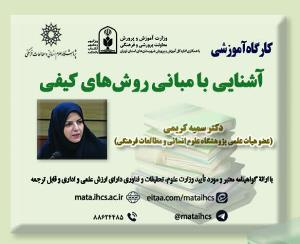Iranian Language School Managers’ Attitudes towards EFL Teacher Supervision
منبع:
Iinternational Journal of Foreign Language Teaching & Research, Volume 9, Issue 35, Spring 2021 (2)
حوزه های تخصصی:
شماره صفحات:
۵۳ - ۶۹
دریافت مقاله
تعداد دانلود :
۲۱۳







